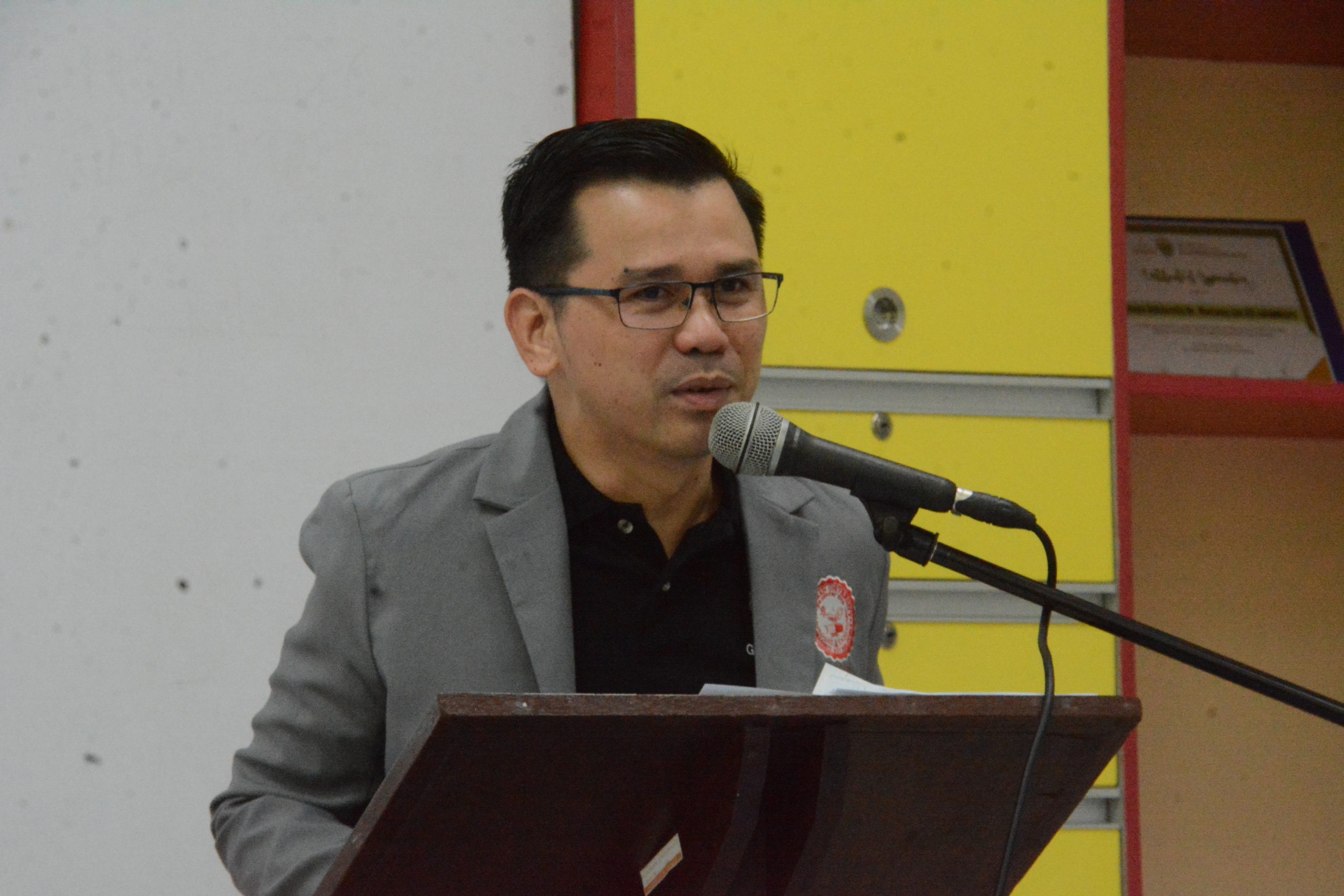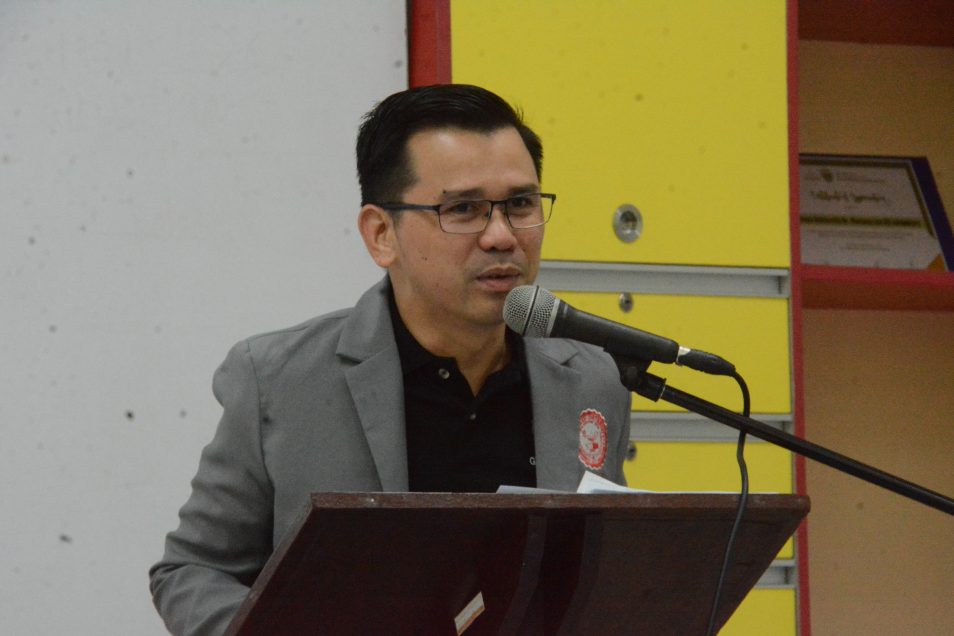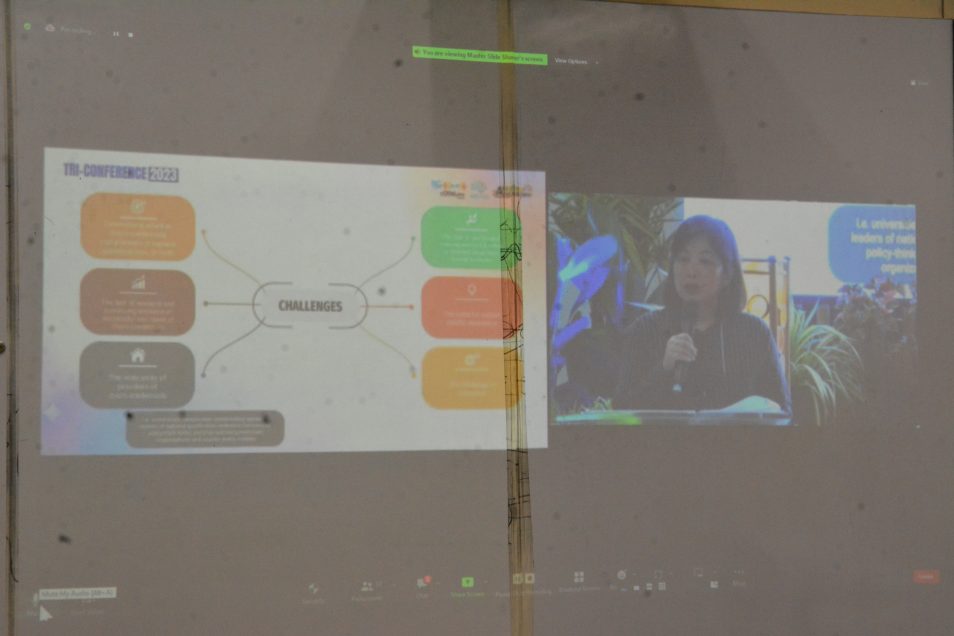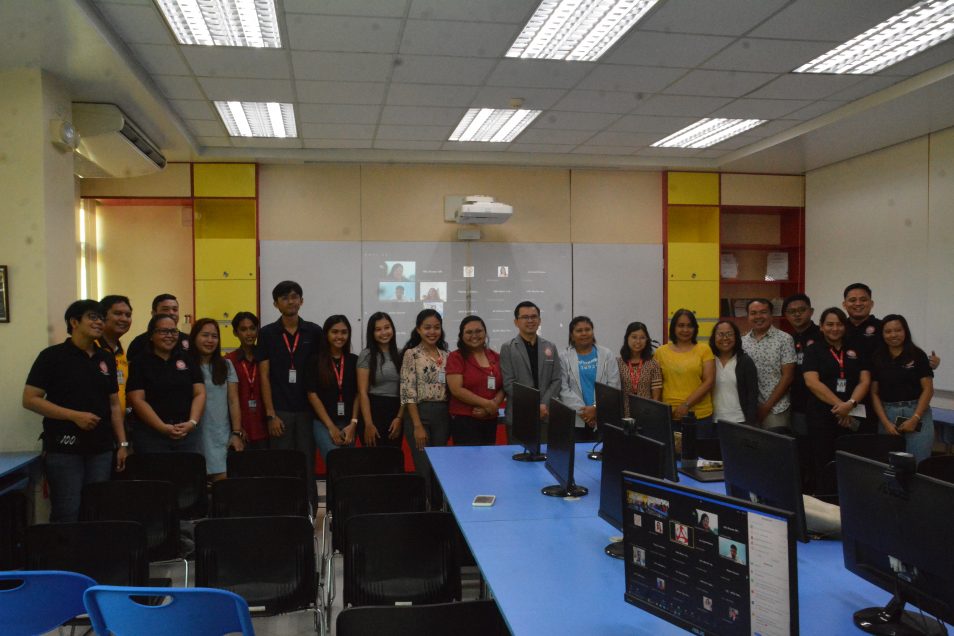
SU invites schools, universities to offer certificate programs, short courses

Dr. Dave E. Marcial, Silliman University Dr. Mariano Lao Global Studies Center director, introduces SU’s project, titled “Design and Implementation of Micro-credentialing in Higher Education in the Philippines.”
Schools and universities in the Philippines interested in offering micro-credentials or micro-degrees can partner with Silliman University (SU) under its project to establish a micro-credentialing system and network in the country.
Through its Dr. Mariano Lao Global Studies Center (GSC), SU launched the project, titled “Design and Implementation of Micro-credentialing in Higher Education in the Philippines” through a ceremony held online and in-person on December 14, 2023 at the Dr. Mariano Lao Innovation, Creation, and Invention (ICI) Laboratory.
Dr. Dave E. Marcial, GSC director, said a micro-credential is a certified document earned after a short learning experience. The document includes the name of the learner, the achieved learning outcomes, the assessment method, and the awarding body.
SU’s project, which is funded by the United Board for Christian Higher Education in Asia, aims to establish a system for micro-credentialing and a network of higher education institutions (HEIs) that offer micro-credentials.
“The primary objective of this project is to design and implement a micro-credentialing system in higher education in the Philippines based on existing and proven guidelines by the existing providers of micro-credentials. [We hope that this system] will emphasize the establishment of a network, framework formulation, technology, content, and assessment,” said Marcial.
Micro-credentialing, said Marcial, is also called “competency stacking” as it allows students to obtain credentials or competencies in the short term, which they can build up to obtain higher-level education or qualifications that industries recognize.
“Unlike traditional learning systems that package all credentials or competencies as a single program or course, credential stacking dictates that these are packaged separately, thus making them more affordable, and thus making them a more equitable method to obtain…advanced education,” said Marcial.
Micro-credentials
Dr. Joane V. Serrano, University of the Philippines Open University Faculty of Management and Development Studies dean, defined micro-credentials and their role in the global educational landscape in a recorded message during the event as a guest speaker.
“[Micro-credentials] are certified documents that provide recognized proof of the achievement of learning outcome. These are from shorter, less duration educational or training activities and their focus is on the validation of competency-based skills, outcomes, or knowledge using transparent standards and reliable assessments, which enhance graduates’ employability prospects,” said Serrano.
Compared to traditional degree programs, Serrano said micro-credentials are smaller in volume, in terms of study duration or study load; more targeted in terms of skills or study topics; and are more flexible in delivery.
Serrano said micro-credentials, which are also known as professional certificates or specializations, micro-degrees, or nano-degrees, can be used for educational advancement, employment, reskilling, upskilling, enjoyment, or personal growth.
She also said micro-credentials can be stand-alone or stackable.
“A micro-credential can be accepted for credit by an institution or organization or be an attestation for employers and it attests to specific knowledge or skills, competencies through defined learning outcomes and may or may not be stacked towards larger units or accreditation,” she said.
The increasing interest in micro-credentials, said Serrano, is because of a need for fast and flexible solutions to upskill and reskill various sectors; industry-aligned skills and competencies; and employment advancement and career path mobility.
Transforming higher education
Micro-credentials have long been offered by vocational schools and massive open online courses (MOOCs), and now traditional education stakeholders such as universities are also offering them.
“Micro-credentials are part of the transformation in higher education because of the rising demand for graduate outcomes that first support lifelong learning that is dynamic and agile, refresh the current curricula, and engage the stakeholders such as the industry sector [and] employees,” said Serrano.
However, Marcial said certifications for formal credit for micro-degrees “remain unclear, especially in the Philippines.”
“Established and coordinated micro-credential processes are absent in most higher education institutions in the Philippines,” he added.
Elevating skills
Micro-credentialing, said Marcial, addresses the need for continued professional development and “lifelong learning” to fill the skills gap, especially in technology-driven workplaces. He said these challenges were identified in a 2022 survey conducted by SU among 50 member HEIs of the Association of Christian Schools, Colleges and Universities (ACSCU).
Similarly, a 2021 report from an upskilling project conducted by SU and the Private Education Assistance Committee, through ACSCU, highlighted the need to improve teachers’ skills in online teaching and learning, and technology.
“Teachers often face a deficit in adopting digital tools and platforms for effective teaching. Despite this challenge, the same report shows that teachers are highly motivated to be upskilled online,” said Marcial.
He added that upskilling, reskilling, and retooling sessions, both in hard and soft skills, were important to keep abreast with the technological revolutions affecting the workplace.
The project, said Marcial, also aims to enhance the quality of teaching and learning among ACSCU member institutions and other partners and collaborators through micro-credentialing that is focused on faculty development, online teaching, and technology skills.
Need for partners
“Silliman (University) cannot do this alone. We need partners. We need collaborators to make this event and project a success because, after all, this is…an innovation in teaching and learning, not just for Silliman but for the entire country, especially [for] higher education institutions,” said Marcial.
He identified areas of the project wherein partnerships and collaborations are needed, namely in network establishment; policy and framework formulation; technical support for the online information system; development and delivery of pilot courses with micro-credential certificates and badges; dissemination and advocacy; and research and publications.
Expected outcomes for the project, said Marcial, are research and publications on micro-credentialing in HEIs, specifically in ACSCU member institutions; a micro-credentialing network; a handbook for micro-credentialing, detailing policy and implementing guidelines; an online information system or portal for micro-credentialing; and at least six pilot courses, with at least 20 completers for each course.
Those who are interested in partnering with SU in this project may contact Dr. Marcial through the following email addresses: [email protected] or [email protected]

Dr. Joane V. Serrano, University of the Philippines Open University Faculty of Management and Development Studies dean, defines micro-credentials.

Attendees of the project launch and call for collaborators of SU’s micro-credentialing project.


